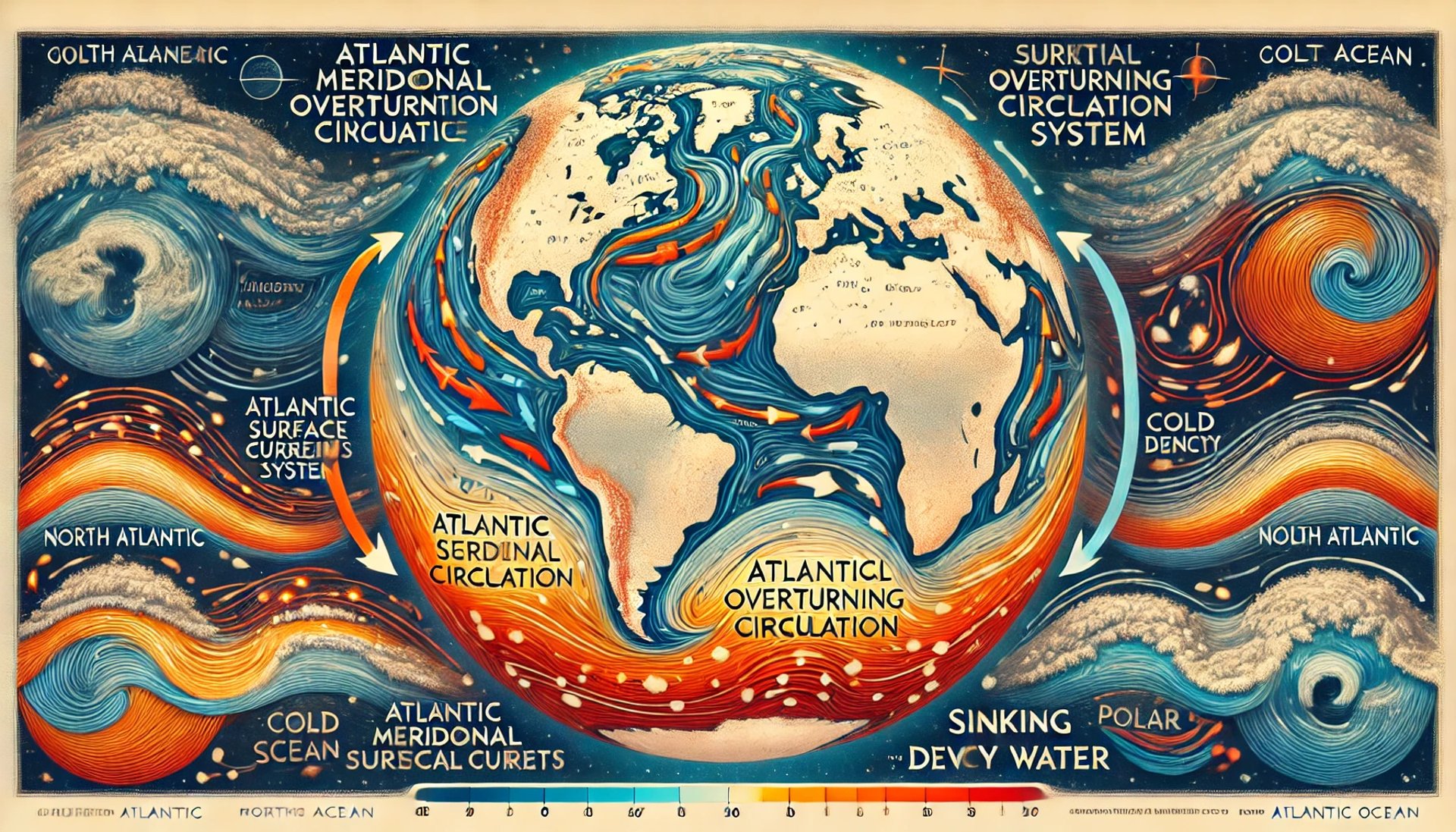
AMOC: The Secret Current That Defines Your Climate
Have you ever heard of AMOC? If not, get ready to learn about the invisible force that governs the global climate and, believe me, it has everything to do with your daily life!
R Cardoso
Imagine the Earth's climate as a giant jigsaw puzzle, where each piece represents a fundamental element: the atmosphere, the oceans, the glaciers, life on Earth and human influence. Each piece interacts with the others, forming a complex and dynamic system.
But what happens when one piece of this puzzle shifts? Small changes in one component of the climate system can trigger chain reactions, with unpredictable consequences for the planet. It’s like a domino: when one piece falls, all the others can fall.


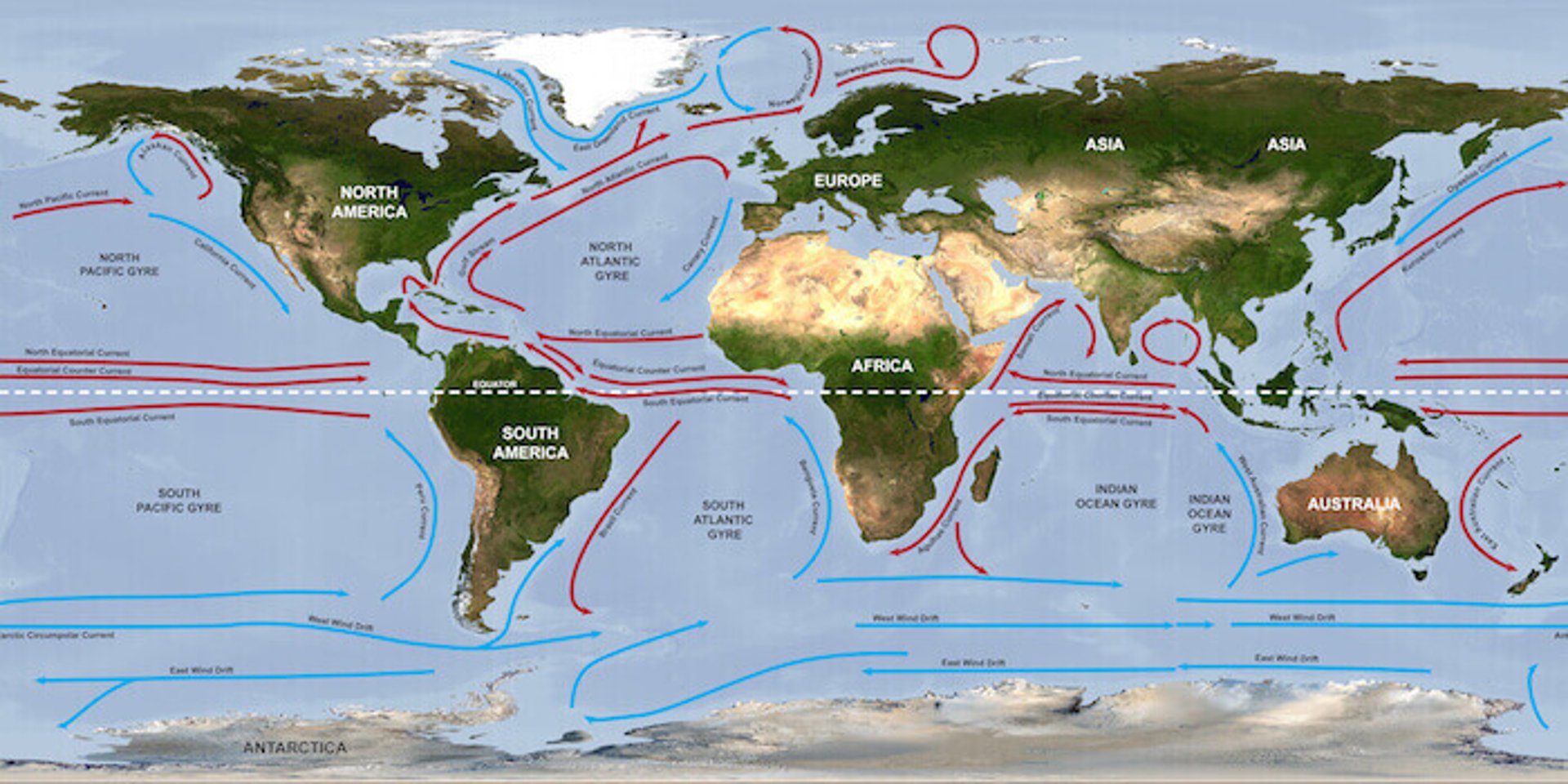
The Gulf Stream: A Driver of Global Climate
Imagine a giant, but invisible river crossing the oceans. This is the Gulf Stream, one of the largest and most important ocean currents in the world. It acts like a conveyor belt, transporting warm water from the tropics to northern Europe, influencing the climate of vast regions.
How does this "conveyor belt" work?
The Gulf Stream is part of a global circulation system known as the Atlantic Meridional Overturning Circulation (AMOC). This system acts as a kind of "conveyor belt" that distributes heat around the planet.
Warming in the tropics: Ocean water warms near the equator, becoming less dense and rising to the surface.
Journey north: Driven by winds, this warm water moves northward, warming coastal regions of Europe.
Cooling and sinking: As it reaches the north, the water cools and becomes denser, sinking and returning south, completing the cycle.

The Importance of the Gulf Stream
The Gulf Stream plays a key role in regulating the global climate. Thanks to it, Western Europe has a milder climate than other regions at similar latitudes, such as Canada. In addition, the current influences precipitation patterns and temperatures in many parts of the world.
What might happen if the Gulf Stream weakens?
Recent studies indicate that global warming may be causing the Gulf Stream to weaken. The consequences of this phenomenon could be serious, such as:
Harsher winters in Europe: The lack of heat transported by the current can lead to colder and snowier winters.
Changes in rainfall patterns: Reduced moisture carried by the current can cause droughts in some regions and floods in others.
Rising sea levels: Melting glaciers and warming oceans could accelerate sea level rise, flooding coastal cities.

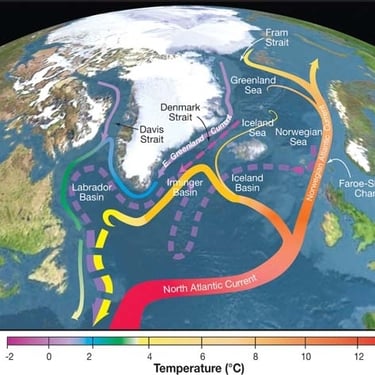

AMOC: The Hidden Current That Controls Your Weather (And You Didn't Even Know!)
Have you ever heard of AMOC (Atlantic Meridional Overturning Circulation)? If not, get ready to learn about the invisible force that governs the global climate and, believe me, it has everything to do with your daily life!
Imagine a giant ocean conveyor belt that carries warm water from the tropics to the North Atlantic, and cold, dense water back down to the depths. This is the Atlantic Meridional Overturning Circulation (AMOC), the "heart" of our Atlantic Ocean.
Why is AMOC SO important?
Climate Friendly: The AMOC is largely responsible for milder weather in regions such as Western Europe and North America. It brings warmth, making our winters milder and summers more pleasant. Without it, prepare for a climate shock!
Healthy Oceans: This vital current distributes essential nutrients to marine life, feeding entire ecosystems and ensuring the health of the oceans.
Climate Stability: The AMOC plays a crucial role in regulating the global climate, influencing rainfall patterns, temperature and even extreme weather events.
The Warning Sign:
Scientists are increasingly concerned that the AMOC could slow down or even collapse due to climate change. Melting ice caps and increasing freshwater in the North Atlantic could disrupt this vital current, with dramatic consequences for the world’s climate.
What does this mean to you?
A weakened AMOC can bring:
Drastic Climate Changes: Regions that currently have mild climates may face harsh winters and extreme summers.
Sea Level Rise: The collapse of the AMOC could contribute to even greater sea level rise in some areas.
Impact on Marine Life: Entire marine ecosystems can be destabilized, affecting fisheries and biodiversity.
The good news? There is still time to act! Understanding the AMOC and its risks is the first step to finding solutions and pushing for action to combat climate change.
Want to learn more about this fascinating and vital current? Stay tuned to our blog for more information and discover how the AMOC directly influences your world!



It is essential that society as a whole becomes aware of the importance of preserving the environment. Reducing greenhouse gas emissions, investing in renewable energy and adopting more sustainable practices are essential measures to slow global warming and protect our planet.
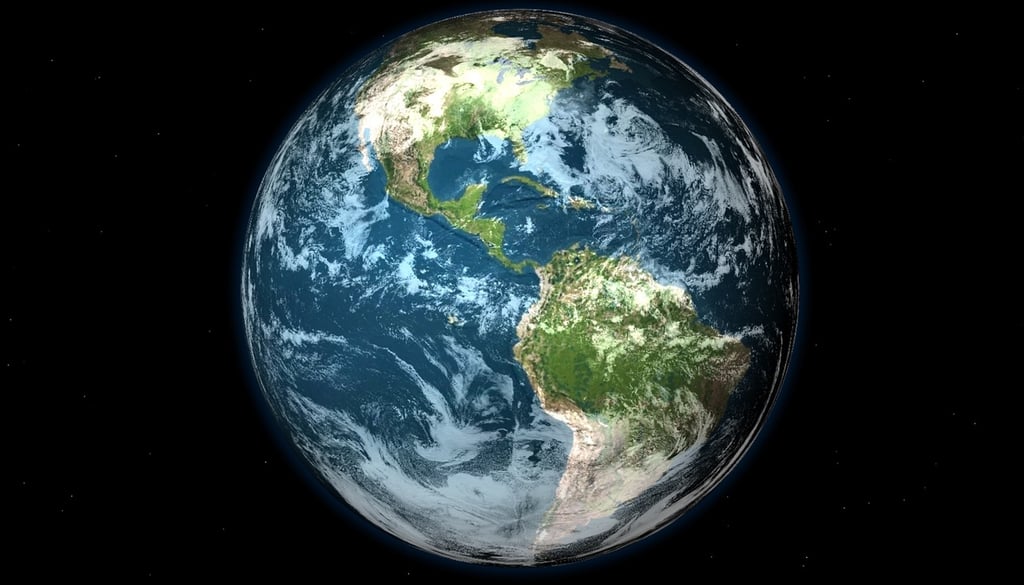

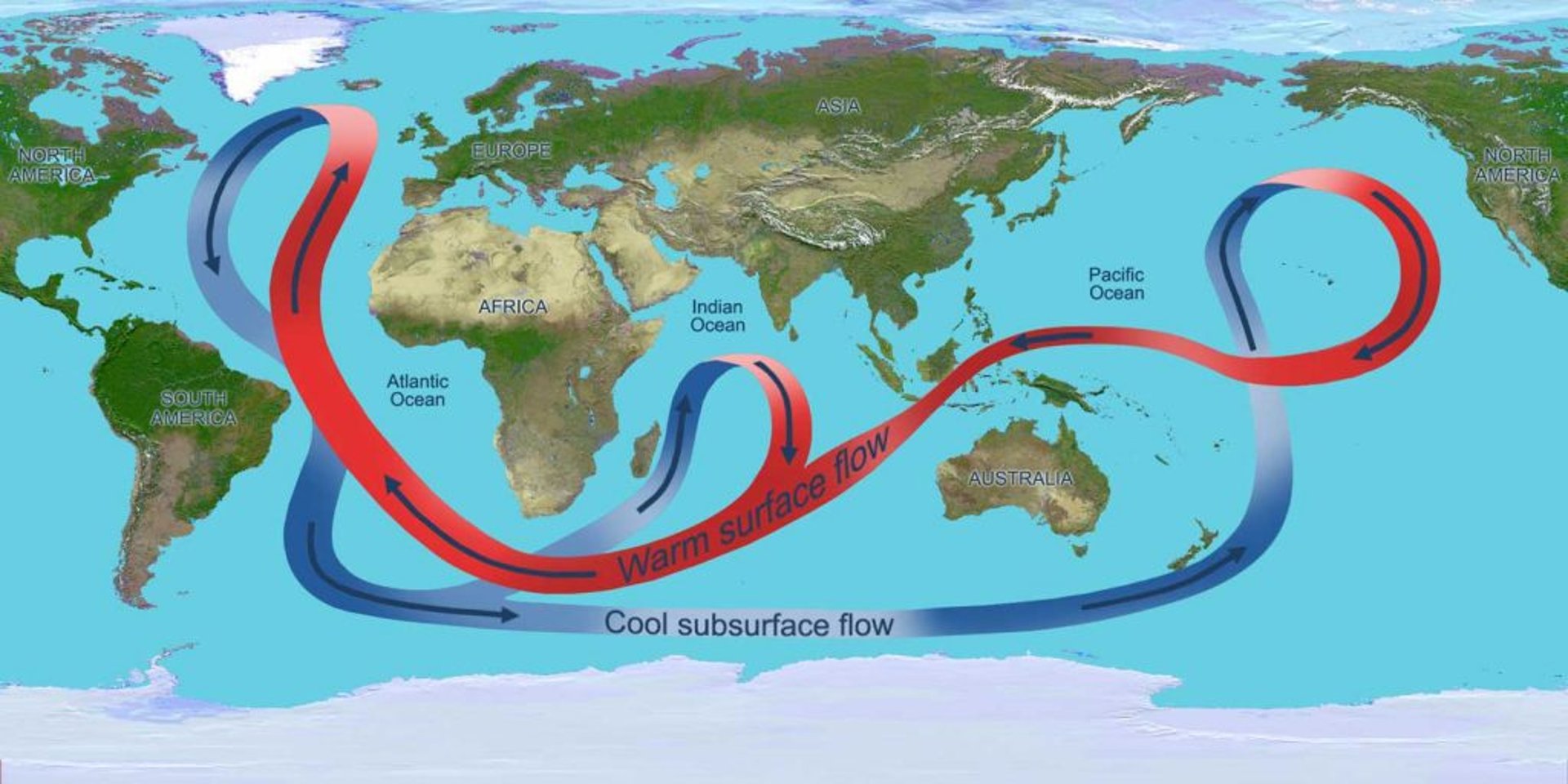
#AMOC #Climate #ClimateChange #Oceans #Science #Blog #Sustainability #Environment


Guide conversations with your friends and family.
HUMANAUTAS
Science, Technology, Curiosities and Behavior.
Contact
humanautaspontocom@gmail.com
© 2024. All rights reserved.
